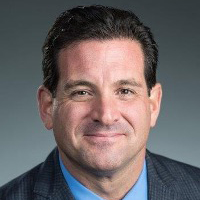How long would it take for you to run out of money if you suddenly stopped getting a paycheck? The thought may seem absurd at the moment, but eventually, that day will come when you retire. From that point on, you won’t have the luxury of earning a paycheck to spend and invest as you see fit. Instead, you’re likely to have a finite amount of funds exposed to the major retirement risks – inflation, market volatility, longevity, and health care expenses, all of which could lead to running out of money.
A comprehensive financial plan should mitigate these retirement risks as much as possible so you can maintain the retirement lifestyle you worked so hard to obtain.
Utilize Protected Retirement Accounts
Life happens, and sometimes it can be costly. A simple mistake, a lapse in judgment, or a simple misfortune can snowball into an enormous financial burden that can even lead to bankruptcy.
In 2023, 416,607 Americans declared bankruptcy. Their assets were seized, their property confiscated, and their livelihoods destroyed. You may think that many of these were due to fiscal irresponsibility – and undoubtedly many were – but the majority are caused by medical expenses.
Bankruptcies aren’t the only risk to your savings and property – a civil lawsuit can just as easily jeopardize your financial security.
In such cases, your brokerage accounts may be used to help pay off your outstanding debts or civil liabilities and, thus, your retirement savings. To safeguard your nest egg, keeping your funds in retirement accounts protected from creditors, bankruptcy proceedings, and civil lawsuits is vital.
Fully Protected
401(K)
Solo 401(K)
SEP/Simple IRAs
Partially Protected
Traditional and Roth IRAs (protected up to $1,512,350 per person)
Any funds located within these retirement accounts are generally safe from the above risks, with a few exceptions:
- To the extent of your ex-spouse’s marital asset interest or as part of child support, payments made under a qualified domestic relations order (QDRO) to your ex-spouse;
- Federal income tax debts owed to the Internal Revenue Service (IRS);
- Criminal fines and penalties imposed by the federal government;
- Civil or criminal judgments resulting from your own misconduct against the plan;
Of course, nobody plans on going bankrupt, but if an emergency happens and you fall on hard times, you won’t have to worry about your retirement savings getting targeted.
Prepare for an Early Retirement
The number one reason for bankruptcies is medical reasons. The number one reason for an early retirement is… you guessed it, medical reasons! Many Americans plan on retiring either at the age when they receive Social Security or their Full Retirement Age, yet end up retiring early because of poor health and disability.
An early retirement, especially before Medicare kicks in, leads to a host of issues that put your retirement income at risk. Firstly, you may not have insurance coverage or an income anymore, meaning you will have to depend on your savings unless you take action. Private healthcare insurance will be necessary to prevent running through your savings on medical bills. Another option is disability insurance, which provides payouts, further reducing the burden on your savings.
If you have to tap into your retirement accounts after all, you should try to do so without triggering heavy penalties. For instance, if you retire early, you may be able to take advantage of the Rule of 55, which allows you to withdraw funds from your 401(k) without penalty if you retire in the year you turn 55 or later.
Alternatively, you may be able to make penalty-free distributions for the following reasons:
- Health Bills
- Medical Insurance Premiums
- Tax Bills
- You’re 100% permanently disabled
Ideally, you would avoid removing funds from your retirement accounts because you will slow down their growth. Also, penalty-free does not mean tax-free; in your already reduced financial situation, you will pay taxes on those funds, further reducing their performance and leaving you with a potentially sizeable tax bill.
An extended retirement means inflation has more time to reduce your purchasing power over the years. That’s why keeping your funds in an account with the potential for compound growth is essential to help fight inflation over the decades.
Running your own accounting business may become impossible earlier than expected at some point, making it necessary to sell your business to fund your early retirement. Therefore, it’s crucial to have a solid exit strategy in place, such as identifying potential buyers, getting a business valuation, and understanding the tax implications of selling your business.
Anticipate Long-Term Care Costs
One of the quickest ways to deplete your savings is the exorbitant cost of long-term medical care. Again, nobody plans on ending up in a nursing home, but so many of us do. In fact, a long-term care service will be necessary for at least 70% of individuals over the age of 65 at some point in their lives, with more than 20% requiring at least five years of care.
And how much will that set you back? The median cost of a private room in a nursing home reached $9,733 per month in 2023. Semiprivate rooms had a median cost of $8,669 per month. This translates to an annual cost of $104,028 for a semi-private room and $116,796 for a private room.
Unfortunately, you can’t depend on Medicare to cover many of these costs. Purchasing long-term care insurance or a life insurance policy with a long-term care rider today can reduce the burden you will face if you do need long-term care.
In Conclusion
The best way to protect your future income is to seek solutions today. Various insurance policies can reduce the pressure placed on your savings by early retirement, gaps in coverage, and long-term care. A strategic asset location strategy can reduce the chances of your savings getting seized by the courts and can help keep your taxes low in the future when you begin making withdrawals.
However, choosing the optimal insurance policies and asset locations isn’t an easy task, and seeking professional advice can simplify the process and help ensure you have the exact coverage necessary based on your circumstances.
If you’d like a review of your financial situation and advice on securing your retirement income, click the button below!







